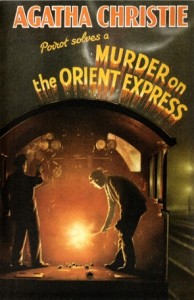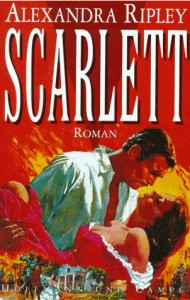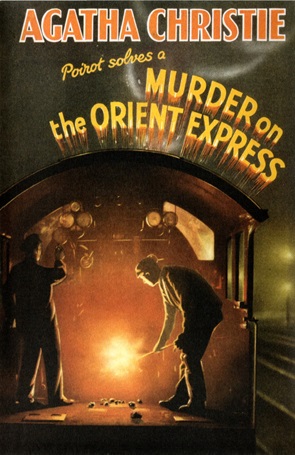 So here’s the news: there will be a new Hercule Poirot novel commissioned by the estate of Agatha Christie coming in 2014.
So here’s the news: there will be a new Hercule Poirot novel commissioned by the estate of Agatha Christie coming in 2014.
The first Poirot novel was published in 1920, and the last Poirot novel was published in 1975.
So that’s a 39 year break between the last Poirot novel and this one. Why wait so long? Or better yet–why is this book coming out now?
Well, to answer that question, let’s jump back a couple decades and investigate the case of the 1991 novel Scarlett, a sequel to Gone With the Wind that was authorized by the estate of Margaret Mitchell.
The novel was universally panned (although it sold millions of copies). But that wasn’t the reason it was published. The reason it was published was simple: copyright.
At the time, copyright on a book extended 50 years after the author’s death. Margaret Mitchell died in a car accident in 1949, which meant that copyright on Gone With the Wind was due to expire in 1999. By publishing a sequel, the estate maintained control of the characters. So when Gone With the Wind enters the public domain, Scarlett O’Hara and Rhett Butler won’t. That prevents other people writing sequels or other original works of fiction using those characters.
 Here’s the thing, Gone With the Wind didn’t enter the public domain in 1999, though. Because in 1998, Congress passed a new law which said, among other things, that for any books published between 1923 and 1977 the copyright is 95 years after the date of publication.
Here’s the thing, Gone With the Wind didn’t enter the public domain in 1999, though. Because in 1998, Congress passed a new law which said, among other things, that for any books published between 1923 and 1977 the copyright is 95 years after the date of publication.
That means that The Murder on the Links (1923), featuring Hercule Poirot will enter the public domain in … 2018. And pretty much every year after that, a new Poirot novel will enter the public domain.
This clearly reduces the value of Christie’s estate over time. Essentially, the new Poirot novel (and however many will follow it) means the estate gets to keep control of the character and also gets to keep the money flowing in, even after Christie’s novels enter the public domain.
Let me be clear: it’s dumb that the copyright extends for so long, and it’s not in the interest of the public.
And it’s even worse for new books, too. Part of the 1998 law says that the new terms of copyright for anything after 1989 remains for 70 years after the death of the author. That is absurd. That means this blog post, for example, is copyrighted for 70 years after my death. All of my novels: 70 years after my death. If I live an average lifespan, that means that Arthur Beauytman will enter the public domain in roughly … 2131.

Coming to the public domain in 120 years or so!
Do I want my wife and family to benefit from the novels and characters I wright? Absolutely. Do I want my great-great-grandchildren to live off the proceeds and publish new Beautyman novels to maintain the copyright? God, no.
It’s not just about that, though: copyright is supposed to be a balance between the benefit of the public and the benefit of the author.
The Constitution gives Congress the power to regulate copyright:
To promote the Progress of Science and useful Arts, by securing for limited Times to Authors and Inventors the exclusive Right to their respective Writings and Discoveries.
Note the key word: limited.
It’s a good thing that anyone can write Sherlock Holmes stories without having to check with the estate of Arthur Conan Doyle. Without it, we wouldn’t have gotten Chabon’s The Final Solution, or the movie The Seven-Per-Cent Solution, or–my favorite–the new BBC Sherlock with Benedict Cumberbatch.
It would be a good thing if we could do the same thing with Poirot, or Miss Marple, or even Harry Potter. Before, you know, the middle of the next century.
